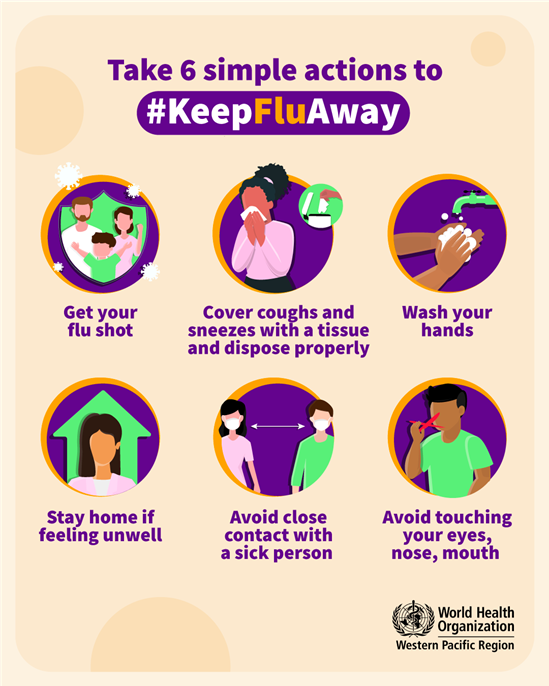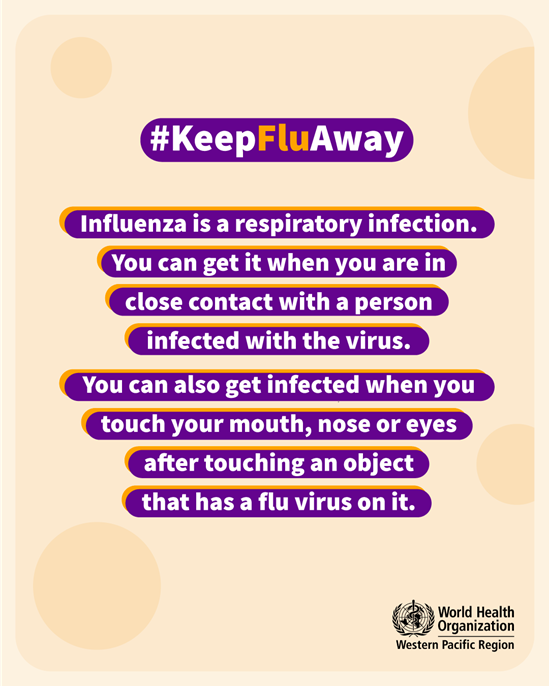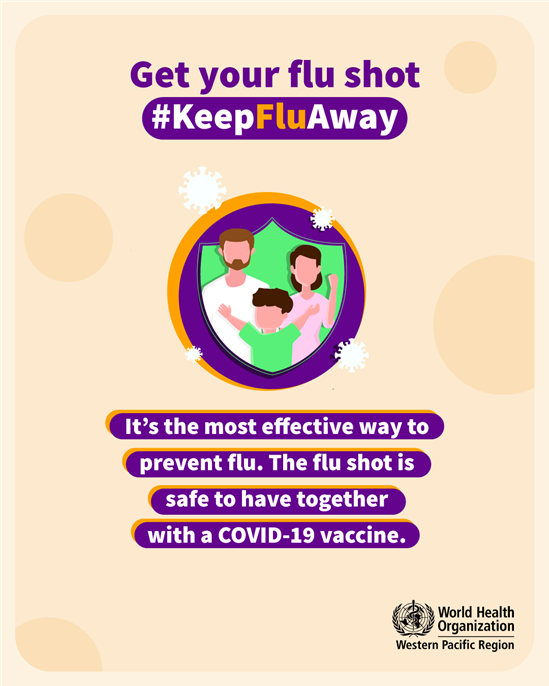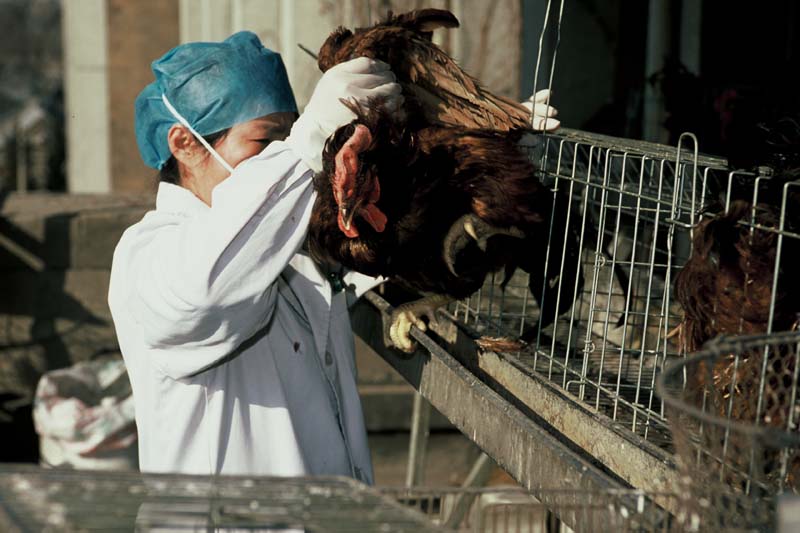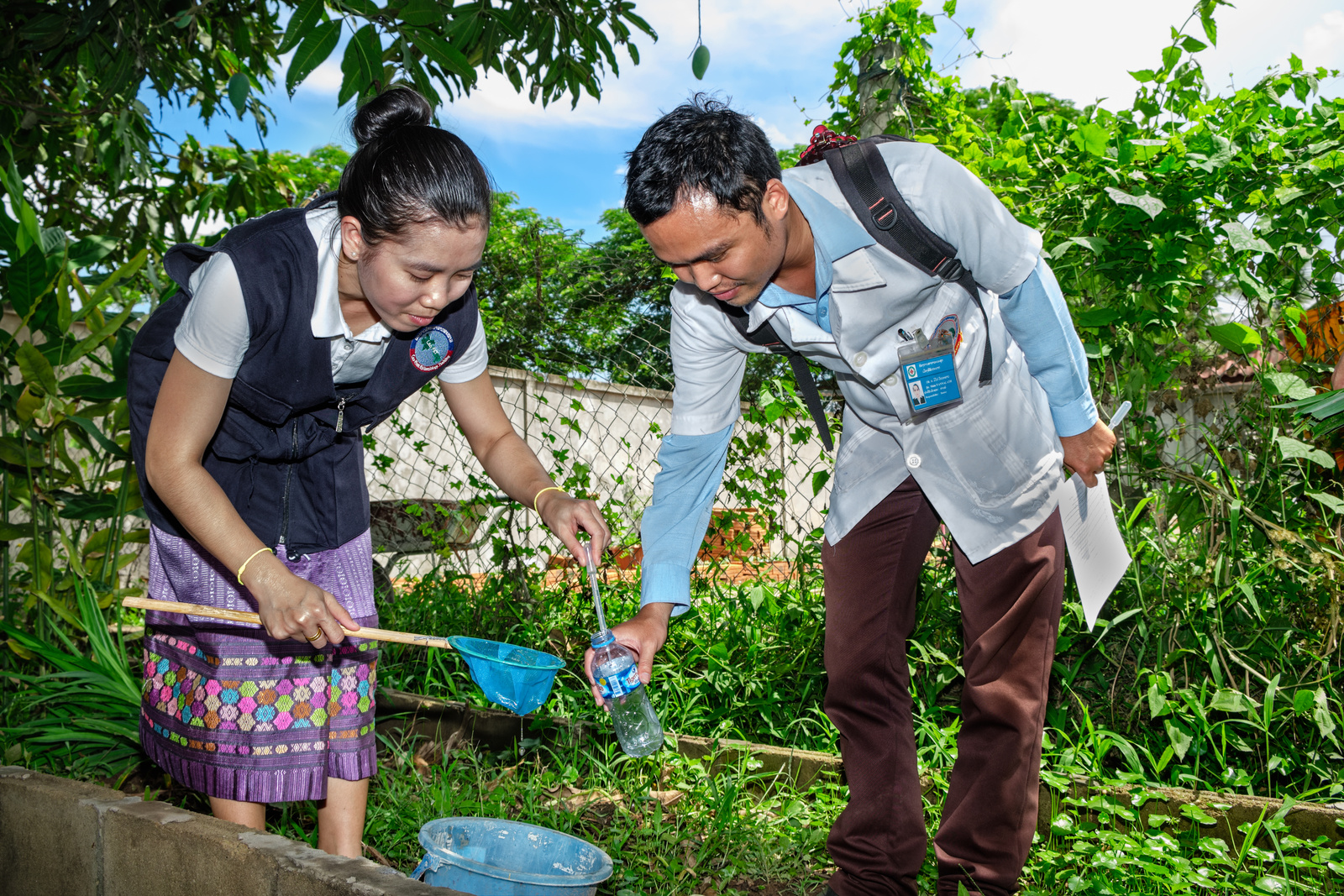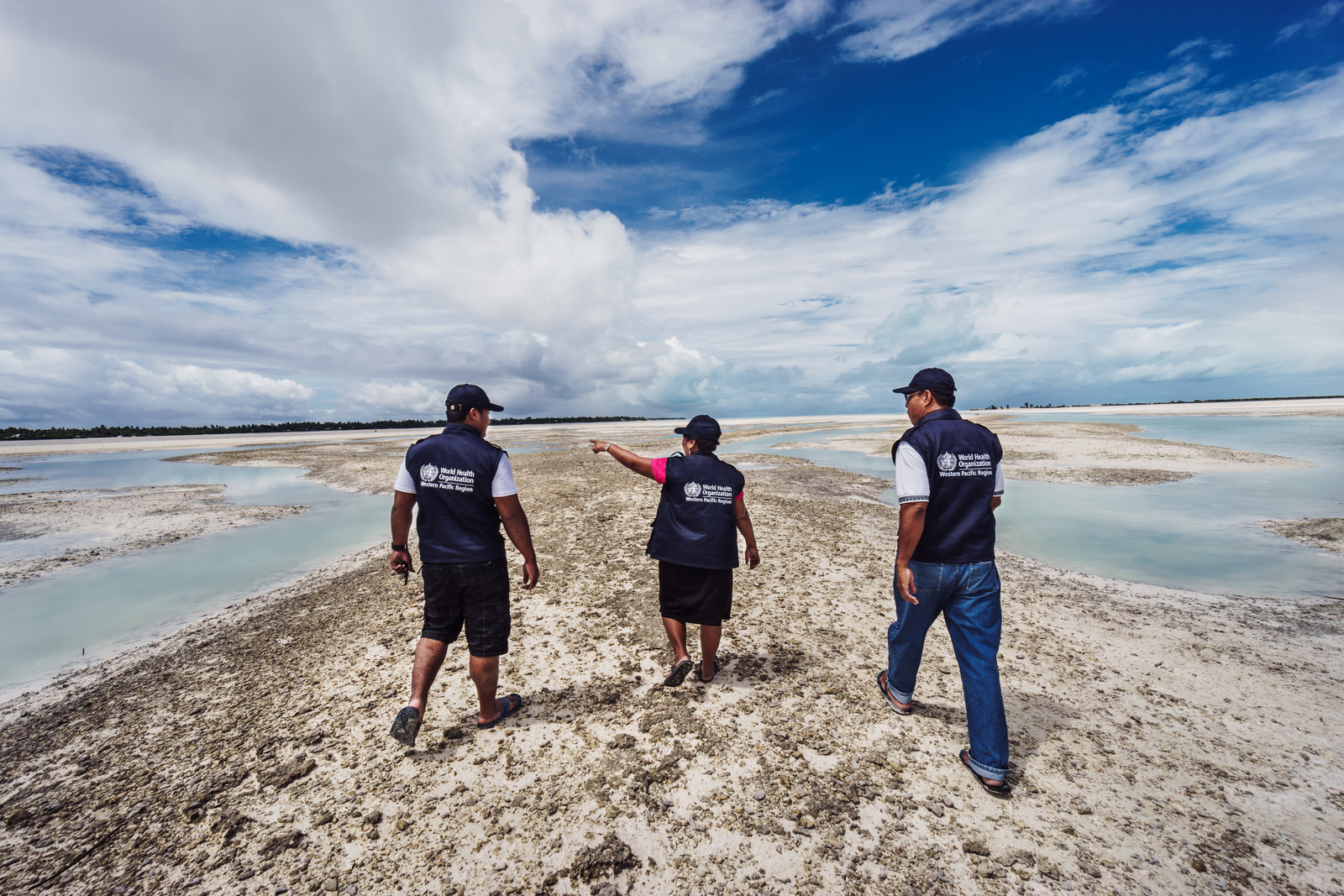Seasonal influenza is an acute respiratory infection caused by influenza viruses which circulate in all parts of the world. Most people recover from fever and other symptoms within a week without requiring medical attention. However, influenza can cause severe illness or death, particularly among high risk groups including the very young, the elderly, pregnant women, health workers and those with serious medical conditions.
Given the risk to vulnerable groups and the potential for seasonal influenza viruses to cause outbreaks and epidemics, WHO's Health Emergencies Programme monitors and assesses the spread of these viruses on an ongoing basis.Influenza surveillance in the Western Pacific Region is based on outpatient and inpatient indicator-based surveillance (IBS) systems, as well as event-based surveillance. Case definitions, population groups and data formats differ among countries. This influenza surveillance summary includes countries and areas where routine IBS is conducted, and information is available.
WHO in the Western Pacific monitors and assesses the spread of these viruses on an ongoing basis publishing a bi-weekly summary of the situation in the Region.
Situation reports
Archives
Health topics
Fact sheet
Related publications
Featured publications
All →
Considerations for use of avian influenza A(H5) vaccines during the interpandemic and emergence periods:...
WHO conducted a virtual scientific expert consultation on A(H5) vaccines and vaccination. This report provides an overview of the landscape of A(H5) vaccines...

Respiratory syncytial virus sequencing considerations for an expanded Global Influenza Surveillance and...
In recent years, rapid progress has been made in the development of new pharmaceutical interventions against respiratory syncytial virus (RSV), including...

Surveillance for human infections with avian influenza A(H5) viruses: objectives, case definitions,...
The overall objective of continual global surveillance for human infection with avian influenza A(H5) viruses is to detect and characterize any influenza...

Joint national/international Expanded Programme on Immunization and vaccine preventable disease surveillance...
The joint national/international Expanded Programme on Immunization (EPI) and vaccine-preventable disease surveillance review and post-introduction evaluation...





/common-symptoms-of-influenza.tmb-549v.png?sfvrsn=5213bc99_1)
